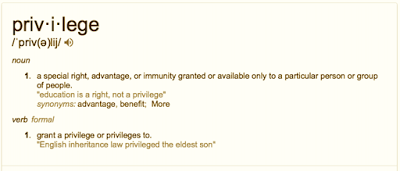
The discussion about the furor regarding Princeton Seminary's decision to withhold its Kuyper Prize for Excellence in Reformed Theology and Public Witness from Presbyterian pastor Tim Keller continued at various internet sites yesterday. I blogged about the controversy yesterday morning, and about Jonathan Merritt's response at RNS to Princeton's decision.
A sample of some of the online back and forth: Rachel Held Evans and Jonathan Merritt debated the Princeton decision on Twitter yesterday. A thread with that discussion is here. As you'll see if you click on it, the argument hinges around whether Keller is being unfairly marginalized by liberals who employ a double standard when it comes to issues of free speech (Merritt's position), or whether it's preposterous to claim that a privileged white man who is having an award withheld from him can claim to be marginalized (Held's position) — with apologies to both for summarizing in my own words and possibly putting words into the mouths of either.
As I read Sunnivie Brydum and Evan Derkacz's takedown of Andrew Sullivan's critique of intersectionality today at Religion Dispatches, it struck me that what's really being debated in these discussions about whether privileged white men are somehow due awards, and are due a deference never given to less privileged members of society, is the issue of intersectionality itself. Intersectionality is ipso facto a serious challenge for privileged white men, including privileged white gay men for whom "privilege" + "male" + "white skin" outweigh sexual orientation in many discussions.
Such that some privileged white gay men — Peter Thiel and Milo Yiannopoulos come to mind — can be gung-ho Donald Trump supporters. . . . Can anyone say, "Roy Cohn"?
African-American pastor Michael Eric Dyson sees the possibility — indeed, the imperative need for — a coalition ranging from "agreeable agnostics to fire-and-brimstone Protestants, from devout Catholics to observant Jews, from devoted Muslims to those who claim no god at all" to come together and build a more humane America around a shared vision of moral repair and redemption. The protest that Reverend William J. Barber III led at Paul Ryan's office on Wednesday afternoon brought together Christian ministers of many religious stripes with rabbis, imams, and leaders of other religious groups.
It brought together men and women, black and white folks, people from different sectors of American society and different geographic locations. I feel quite sure it brought together straight and LGBTQ people, as well.
As Taylor Branch's magisterial biography of Reverend Martin Luther King Jr. shows us, it was when King became more intentionally intersectional in his civil rights crusade — when he moved from focusing more or less exclusively on racial issues to focusing on issues of economic exploitation that bound poor white and poor black people together — that he became a more serious threat to the powers that be in the U.S., and was assassinated. When he moved from talking more or less exclusively about matters of race to denouncing the Vietnam War and leading a poor people's march on D.C., he became a serious threat to the people running the country.
To the white men running the U.S., that is to say . . . .
It seems to me not a great deal has changed, despite Barack Obama's double election to the White House. If anything, that historic event has caused the people running the American show to double down on their discriminatory intent and their efforts to inflame resentment among various marginalized groups with propaganda and lies setting group against group. I don't find it strange that, in such a situation, many privileged white gay men would choose to stand with other privileged white men who feel embattled, and who feel intersectional movements crossing lines of gender, race, and sexual orientation are a serious threat to the unmerited power and privilege they enjoy because they are white, male, and living in the right places with the right social and educational connections.
I do, however, find the lack of critical insight and the lack of solidarity extremely disappointing. It's perfectly obvious to me that, from King to Dyson to Barber, the key to challenging oppression and discrimination in our society lies in solidarity. It lies in intersectionality.
I find the inability of many white men, including gay ones, to examine our unmerited power and privilege as males who have the "right" complexion disappointing in the extreme. And I find the argument that, though it's clearly theologically illicit to use religious warrants to bolster racial discrimination, it's licit to use religious warrants to bolster misogyny and homophobia, silly. As a friend emailed to say to me today, in response to the Princeton brouhaha and the anger that people like Jonathan Merritt feel that Keller is not being given an award, "Why doesn't Princeton invite a KKK member to speak about his views of African-Americans, Jews and the LGBT community?"
I'd like to see those angered that Princeton has walked back its award for Keller defend that.

